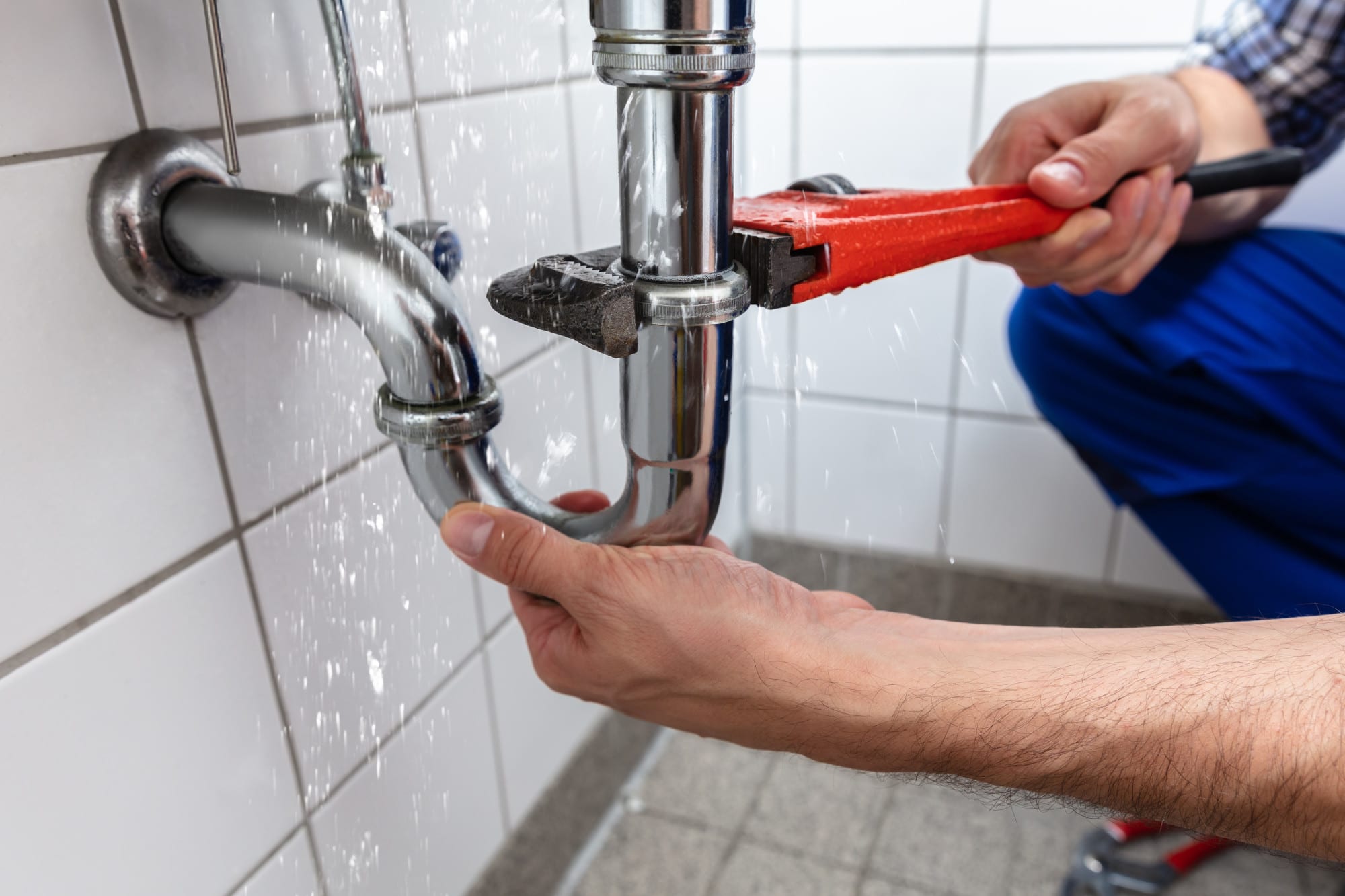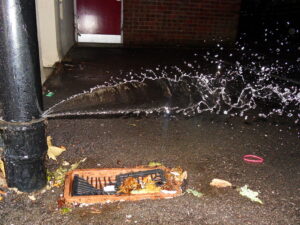Listed here in the next paragraph you will discover some quality help and advice pertaining to How to Shut off Your Water When Pipe’s Burst.

You must recognize exactly how to switch off your primary water line if you suffer from a burst pipe. Do not wait for a plumbing emergency before figuring out how to get this done. Besides, besides emergency leakages, you will require to switch off your primary water shutoff for plumbing repair services or if you leave for a long trip. Learn more concerning it in this mini overview.
Why Must You Shut the Main Line Off?
Familiarizing yourself with how your mainline switches on as well as off can conserve you during an emergency. For example, when a pipeline all of a sudden bursts in your residence, you'll be besieged with panic. Hence, you can conveniently shut the valve off as well as avoid much more damage if you know what to do. On top of that, closing this off guarantees you do not have to manage an unexpected flooding in your house.
In addition to that, closing as well as opening up the shutoffs once in a while ensures they don't obtain stuck. It is additionally the best time for you to evaluate for rust or various other damaged links. Furthermore, make it an indicate enlighten other relative on what to do. This makes routine upkeep and also handling emergencies a lot less complicated. You can possibly conserve on your own thousands of bucks out of commission.
Where is This Key Shutoff Situated?
The major water line supply can vary, so you may need to find time to find out where it is. However, when your residence is obtaining drenched due to a burst pipe, you do not have the deluxe of time throughout an emergency. Therefore, you need to get ready for this plumbing situation by learning where the shutoff lies.
This shutoff valve might look like a ball shutoff (with a lever-type deal with) or a gate shutoff (with a circle spigot). Placement relies on the age of your house and also the climate in your location. Check the adhering to usual areas:
- Inside of House: In chillier environments, the city supply pipes run into your house. Examine usual energy locations like your cellar, utility room, or garage. A likely area is near the water heater. In the basement, this shutoff will certainly go to your eye degree. On the other major floorings, you may require to bend down to discover it.
- Outdoors on the Outside Wall: The major valve is outside the home in exotic environments where they don't experience winter. It is usually linked to an outside wall. Check for it near an outdoor faucet.
- Outdoors by the Road: If you can not locate the valve anywhere else, it is time to examine your street. Maybe outside alongside your water meter. It could be listed below the accessibility panel near the ground on your street. You may need a meter secret that's offered in hardware shops to take off the panel cover. You can find two shutoffs, one for city usage and also one for your house. Ensure you turned off the best one. And you will certainly recognize that you did when none of the faucets in your home release freshwater.
Must This Always Be Shut down?
Besides emergencies, repair services, or long vacations, you may not require to switch off the primary shutoff. For instance, so one component has concerns, you can turn off the branch shutoff because spot. In this manner, you can still utilize water in various other parts of your house. For finest outcomes, call a reliable plumber for emergency situations.
Pipe Burst? Here's What to Do Next
There's nothing worse than that sinking feeling that sets in when you notice water dripping from your ceiling or — worse — gushing from a broken pipe. Many homeowners find themselves panicking as they start to tally up the water damage repair costs. Fortunately, a bit of forward planning can help you avert a total plumbing disaster.
What Happens When a Pipe Bursts?
There are several reasons that your pipes could burst, though one of the leading culprits is ice. When the temperature outside dips below freezing, the water in your pipes can freeze, too. When water freezes, it expands, putting significant pressure on your pipework.
When your pipes freeze for the first time, they may withstand the added pressure without any adverse effects. However, allowing your pipes to freeze repeatedly will gradually weaken them as they expand and contract, eventually causing them to burst or crack.
- Corrosion
- High water pressure
- Blockages
- Invading tree roots
How Do You Know If Your Pipes Have Burst?
When you mention broken pipes, most people imagine water gushing dramatically from the wall or ceiling. However, the first signs are often subtler. It's a good idea to look out for the less obvious symptoms of a major leak.
When a water pipe bursts, moisture starts seeping into your floors, ceilings and insulation, causing significant damage. Eventually, mold and mildew start to flourish, creating a potentially hazardous living environment. If you find yourself wading through puddles of water on the floor or can hear water bubbling inside the walls, you won't be left in any doubt as to whether you have a burst pipe.
Unexplained Hike in Water Bills
If your water bill suddenly shoots up for no apparent reason, it could be a sign of a burst water main. As water seeps out of the pipe, it sends your water usage sky high. Any unexpected increase in your water bills warrants further investigation.
Reduced Water Pressure
A broken water main or burst pipe means your system must work harder to maintain a supply to your faucets and other fixtures. Therefore, reduced or uneven water pressure could be a sign that you've got a leak. While there are a few potential causes of dodgy water pressure, it's important to find the reason quickly to prevent water damage.
No Flow
Reduced water pressure is inconvenient enough, but you may suddenly find that you have no water flow at all. One of the most likely reasons for a complete lack of running water is a frozen pipe. You should defrost your pipes as quickly as possible to stop them from bursting.
If you can access the frozen pipe, you could try defrosting it yourself. Turn on the central heating to around 70 degrees and use a gentle heat source like a hairdryer or infrared lamp to warm the pipe up gradually — never use a blowtorch or other open flame. If the pipe is inaccessible or your efforts aren’t fruitful, call a plumber to defrost the pipes for you.
Damp Patches in Your Home or Yard
As water flows out of a burst pipe, you may notice damp or discolored patches on your walls, floors or ceilings. If the leak happens under a tiled floor, it could make the tiles feel wobbly or unstable.
Don't forget to look for exterior signs of a burst pipe. Depending on the location, you may also see puddles, depressions or wobbly pavement in your yard.
https://www.homeserve.com/en-us/blog/home-improvement/frozen-pipe-burst/

I hope you liked our article about What Do I Do If I Have A Burst Pipe In My Home?. Thank you so much for taking the time to read our content. Liked our piece? Please share it. Help somebody else find it. I love reading our article about .
Click On This Link
Comments on “Understanding the Technique of Shutting Off Your Water Supply Owing to a Burst Pipe”